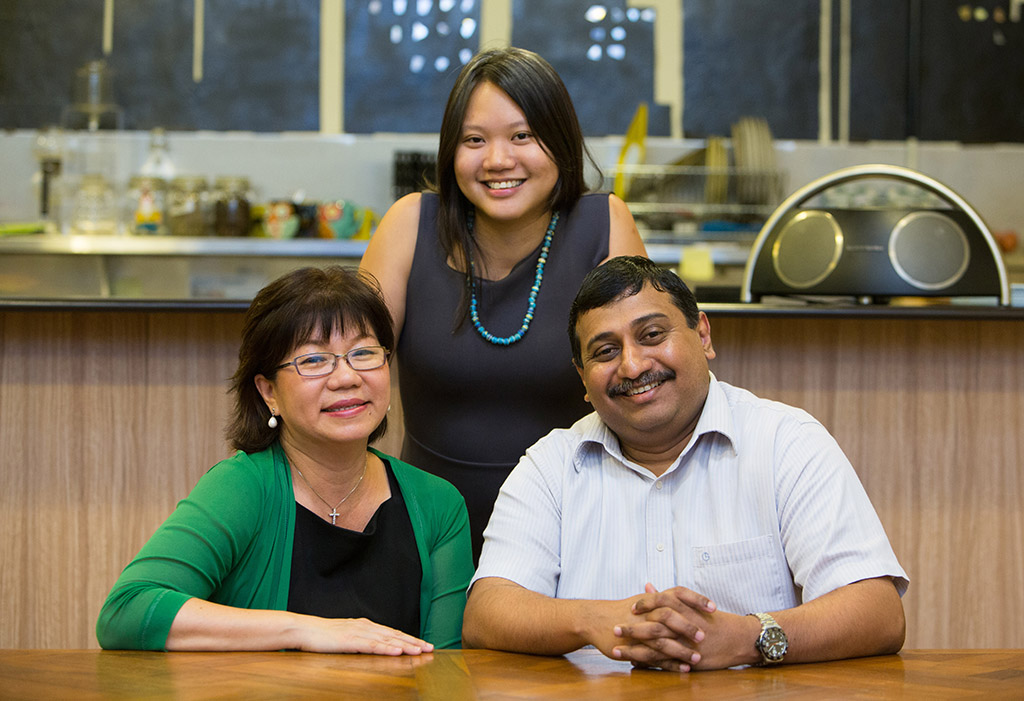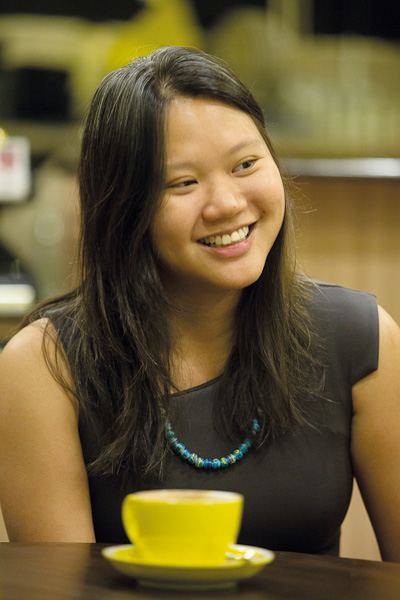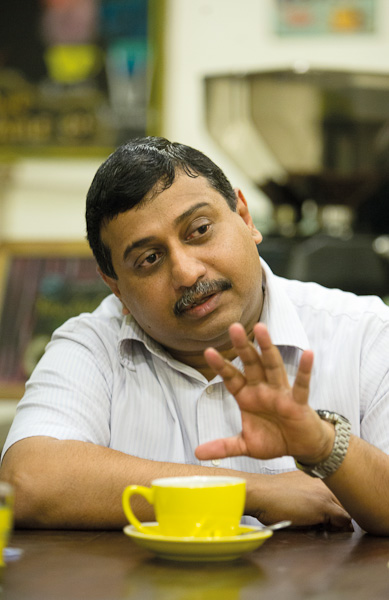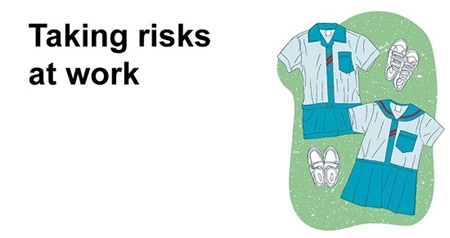Co-Creating Singapore: Hear What Citizens Have To Say
 Facilitated by Challenge contributing editor Bridgette See
Facilitated by Challenge contributing editor Bridgette See
The speakers (L to R):
Denise Phua, 54, President of Autism Resource Centre and full-time volunteer. Before becoming a Member of Parliament, she co-founded and volunteered at Pathlight School, the first special school for children with autism.
Adrianna Tan, 28, IT consultant and community activist. She organises Culture Kitchen, a citizen-driven project that brings Singaporeans, expatriates and migrant workers together over food, films and art.
Prakash Nair, 47, adjunct teacher, facilitator and active volunteer. He has been a facilitator for Our Singapore Conversation (OSC) and focus group discussions for MediShield Life and the Ministry of Defence’s Committee to Strengthen National Service (CSNS).

Bridgette (B): The government seems to talking a lot about co-creation lately. What are your thoughts on that?
Prakash (P): We’re moving in that direction. But we’re not moving fast enough, in my opinion. OSC was a clear example. We have had citizen engagement before, but OSC was a massive public exercise [involving 47,000 people]. In the past, there was a lot more fear of incrimination. Now people are more willing to say, “Look, it’s my country and I have every right to say whatever I need to say.
Adrianna (A): My teachers were convinced that no good can ever come out of having a political opinion, or any opinion. Growing up, I was told by them that I shouldn’t say all these things unless I wanted to be sued or put in jail. That’s clearly changed a lot. I think there’s space for everyone in Singapore to have opinions.
Denise (D): When you talk about co-creation, what most people would expect is, “You hear me out, you change your policy and your programme; you go do it”. But I’m more interested in the outcome, where co-creation means not just thinking but even doing it together, having joint ownership. I don’t believe the government – nor the public, the civil society, volunteers – have all the answers. I think the inevitable trend is for us to co-create.
P: Given that the world is more complex, even more so the whole concept of governance must change. Our government has been so pervasive – for the past 50 years, the government hand is visible in almost everything we do, even in the private sector. We can’t just flip the switch and say now we take our hands off everything.
B: In the old days when the government did not have enough money, it had to rope in citizens to build roads, creating a spirit of gotong royong (community cooperation in Malay)...
D: For essential services, we can’t go back to the days when we built our own roads. We appreciate the spirit, but times have changed. The government has a basic responsibility, especially for essential services, which you can’t ignore, outsource, or compromise. That’s why I feel you can’t just leave people out of basic healthcare insurance.
P: That’s right.
D: The rest of the space – in business, for groups that are a minority, special interests, even animal welfare – I think, give a bit more space.
B: Do you think there’s enough space right now for the citizens to step up? Or has the government been so pervasive that it has wiped out our instinct to self-organise?
P: It’s reality versus perception. The red tape is relaxing, but people are still hesitant. One way to change that is for people to have a greater stake. It need not be huge projects. Small projects are coming up and now with social media, it’s a lot easier for people to reach out. You put it on Facebook and within an hour, you get people volunteering.
A: (nods) I organised Culture Kitchen twice. The second time, I said I needed $500 and I raised it in one hour, just with social media.
D: Just like in any normal relationship, the mutual trust has to be built. When I first wrote papers [to the government on special education], we didn’t know each other and the relationship was very clinical. But when I started to get funding from other people to start doing something and results started to show, trust was built and things became easier to the extent that our charity was able to get permission to start Pathlight School. [At first] it was a really uncomfortable space for the civil servants I had to deal with.
A: I don’t think anyone knows how much space there is. I don’t even know if the government really knows how much space they want to allow. Sometimes the space is not just an intangible thing, it’s also a physical thing. Look at Pink Dot. When it started, there were about 1,000 people in a park. Last year, it was 21,000 people – they are literally growing out of the park. But when they asked for a bigger space, the answer was no, right? I think that’s an interesting thing that we all have to negotiate together.
P: (To Denise) If you had failed – I’m just wondering – the next time you want to try something, you would be tarred by your previous failure.
D: But it’s okay. If you fail, it means something went wrong … but Government has to be open enough to know that they –
P: I’m not sure that they are. That’s my concern.
D: Well, I think there are civil servants and there are civil servants. Some are so open. Some really embraced things that I do, even if they don’t openly display their support. They will help to open the doors when they believe in you. And there are volunteers and volunteers. There are citizens andcitizens.
B: You were saying that citizens have to earn the trust while the government has to be open to…? Failure? Experimentation?
D: I think government has to be open to – correct me if I’m wrong – the idea that they don’t have all the answers.

B: Increasingly, that seems to be the narrative, isn’t it?
D: Our country, including the Public Service, puts a lot of premium on thinking and policymaking, and not enough on doing and understanding the ground. This process of mutual trust and co-creating can be expedited, not only when citizens can think from the government’s perspective, which is usually more macro, but when public servants can also come to the ground, and gain real experience in running a project, a volunteer welfare organisation or a microbusiness. It can be very different and very difficult.
A: When I started Culture Kitchen, I wanted to do it in a back alley in Little India so I wrote to the police for a permit. They asked me 50 questions: they wanted to know my playlist, will there be marshals, will they wear a vest, will I be cordoning it off… That was very restrictive.
So I thought, okay, just do it at a private setting first, learn from it and then try again when I have a template of “Here are the 10 events I’ve run, this is what’s happened and this is why I’m doing it”. This is the kind of space we have.


B: What do you think is the current relationship that citizens have with the government?
A: I feel like it’s a distant Asian father relationship, the whole “I love you… but I will never tell you”, and “I’m also a little bit terrified”. People always say, “Why do you treat us like kids?”, right?
B: How old is that child?
A: A teenage child.
P: It used to be like a parent to a really small kid. “You shut up and listen, do what I say.” Now we have grown up a little bit. But now that we are teenagers, they are still scared. “Okay, I will let you grow but there are certain limits.”
B: Who is scared?
P: The parent is scared…
B: That the child will make mistakes?
P: And then cause more problems for the parent.
B: Out of love, right?
P: Yeah. That’s the saddest part. Everybody wants what’s best for Singapore – the government, public servants and citizens – but the government is still very scared of letting go. You should be allowed to make mistakes; otherwise you cannot grow. I’m afraid that these teenagers will mistrust anything that comes out of the parent’s mouth: Oh, I don’t like you telling me what to do, then I slam the door in your face and do whatever I want to do in my own room. If you want to build a happy home, you must allow people to grow in different directions. I’ve had the privilege of meeting many public servants, young and old, who are ready to move to the next level. I’m not sure if their bosses are, [or] if the system allows them yet, but they are already doing a fair amount. You know, all this Public [Sector] Transformation, I hope it’s not just transformation on paper.

B: Denise?
D: I do think that it’s parent-child, even though now I must say it’s an older child.
B: How old?
D: High teens?
P: About to go NS lah. (laughter)
D: We need to move towards a more adult-to-adult relationship. We have to work out the major hot-button issues, and look at the whys and the hows together. If we can’t reach a solution, fine, but at least we speak – maybe we can find something, some common ground and take out the angst. OSC 2 has to come; we need to go deeper into issues.
P: (nods) The citizens themselves must be willing to say, “Yes, I give you my perspective but I also want to hear why these things are there,” and then we can have that conversation.
D: But governance is not easy. Because after all these OSCs, somebody still needs to take a position and act on it.
P: We cannot always just talk.
D: (nods) So we need to move towards the adult-to-adult relationship. But it takes both to behave like adults. It’s not just one or the other.
How can we move to the next level of engagement? Continue the conversation
on Cube.
This article is part of a series 7 Ways To Go Steady With The Public.
- Growing With Our Citizenry
The social contract between Singaporeans and the government is changing. How should government agencies respond? - Earn Trust By Connecting Emotionally
Head of Civil Service Peter Ong on the elements of trust and where the Public Service can do better. - How Openness Strengthens Relationships
Sharing data and crowdsourcing through hackathons is bringing two public agencies closer to the public. - Bringing Help Closer To Homes
Moving into the heart of communities and working closely with partners, the new Social Service Offices do their work guided by the principle that it's all about the people. - Let's Get Personal
There is no foolproof way to make any Facebook, Instagram or Twitter post go viral. But some public agencies have begun to show that humour and "keeping it real" can help them engage the public like never before. - They've Got Your Back
Challenge talks to four winners of this year’s PS21 Star Service Award who have earned the public’s trust by being there for them.
- POSTED ON
May 14, 2014
-
Deep Dive
Strengthening Singapore’s Food Security
-
Your Say
Taking Risks At Work








.tmb-tmb450x250.jpg)
